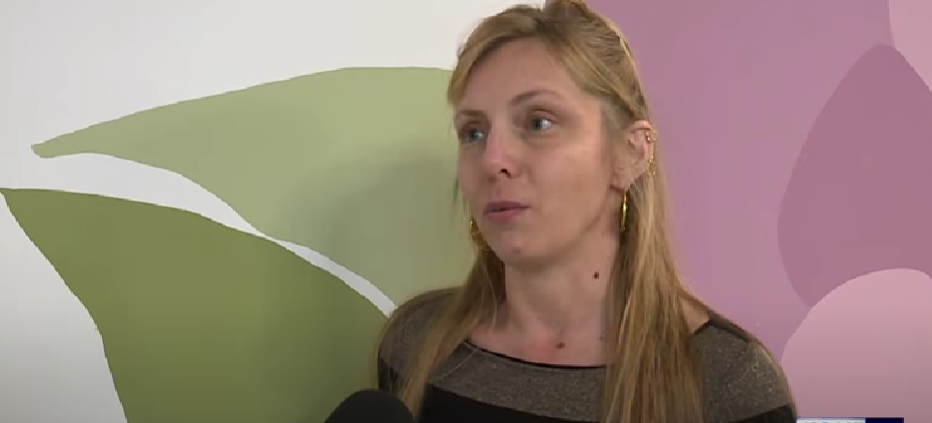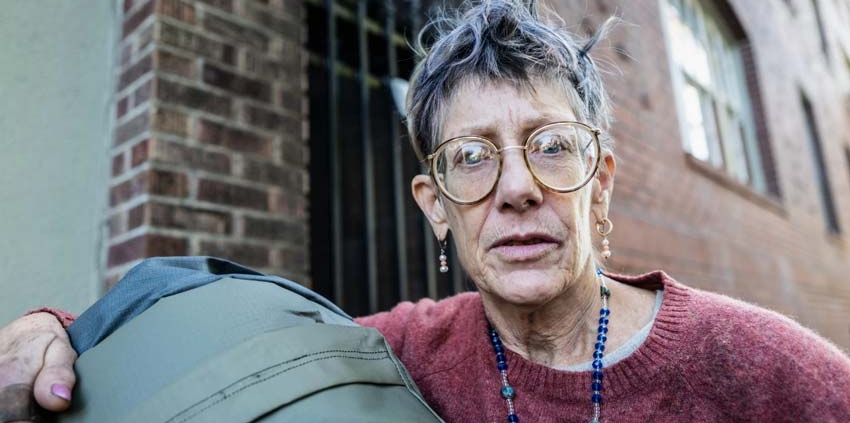Executive Directors of Four Grassroots Organizations Came Together to Collectively Ask for Help from our Community
Executive directors of four major nonprofit organizations in Portland collaborated to publish an op-ed in The Oregonian regarding our citywide homeless crisis. This piece was put together by Scott Kerman at Blanchet House, Katie O’Brien at Rose Haven, Carrie Hoops at William Temple House, and Michelle Meyer at Maybelle Center for Community.
Read the full story below and on The Oregonian. You can help us help Portland by sharing this op-ed far and wide on Facebook and Twitter!
Photo Caption: Blanchet House served those in need throughout the pandemic. The organization has since returned to in-person meals. The executive director of the organization, along with the executive directors of three other groups, write that they are struggling to continue providing services to the needy amid daily violence in our neighborhoods and the community’s addiction and mental health crises.
Scott Kerman, Katie O’Brien, Carrie Hoops and Michelle Meyer
Kerman is executive director of Blanchet House. O’Brien is executive director of Rose Haven. Hoops is executive director of William Temple House. Meyer is executive director of Maybelle Center for Community.
This is hard to write because it might sound like we’re giving up. We’re not – but we need help.
As the executive directors of Blanchet House, Rose Haven, William Temple House and Maybelle Center for Community, we are committed to serving vulnerable people living on the margins – the disconnected, discounted and often forgotten. With collectively 180-plus years of service in Portland, our nonprofit organizations are the ones that people in need turn to for help, whether it’s food, clothing, mental health counseling, showers, health care, shelter, housing or simply to find community with others.
We are not government agencies, but we provide public benefits and services. We are privately funded by generous individuals, businesses, foundations and grants – not government contracts – and have successfully operated with lean budgets and staff. But in the past two years, our costs have skyrocketed as the toll of the community’s mental health and addiction crisis has fallen on us to manage, along with the growing need to protect the safety of our clients, staff and volunteers. We need our local government to confront today’s unprecedented circumstances, help shoulder the load in meeting these needs and summon the creativity and urgency to change the on-the-ground reality right now.
In the Old Town and Northwest Portland neighborhoods where we work, we serve amidst elevated levels of daily violence – violence that victimizes our clients and the people trying to help them. A man was brutally stabbed outside one of our organizations this summer. A man in mental health crisis smashed a bystander’s head with a rock, severely injuring him. A woman in a wheelchair was left at the doorstep of one of our organizations. We spent all day trying to find an agency willing to help her. None were.
We are not giving up, but we must be realistic about our ability to continue in this environment, which makes it harder to recruit volunteers and burns out staff members, without whom there are no services.
Make no mistake. Our volunteers and staff members are made of strong stuff. After all, we’ve never exactly served in a comfortable, easy environment. Compassionate, mission-driven and dedicated, they come downtown and stick with us through hardship and tragedy. But it feels like we’re approaching a breaking point. If the services we provide disappeared, the impact on our city would be immediate and glaring. Our organizations could disappear, but the people who need us will not.
What can the city and county do to help? First, they can free up funding to help us provide these public benefits during this incredibly precarious time. Clear bureaucratic hurdles and help us pay these irreplaceable workers. If the city can spend millions on private security for city-owned properties, it can help defray the costs of employing and protecting nonprofit workers providing meals and support to those in need.
It also is time to abandon pre-pandemic ways of assessing need and how we should respond. For example, right now because they are not deemed “a danger to themselves or others,” too many truly vulnerable, defenseless people are simply left to play out the rest of their lives in madness or addiction, victimized and brutalized until they die or are jailed. This is unacceptable and requires legislative attention to our civil commitment laws.
We need a cohesive plan for what to do with sick, injured, or traumatized people. Right now, too many people are dropped at our doors because our hospitals and emergency services don’t know what else to do with them. We aren’t designed to care for everyone.
We also need our civic agencies to reassess what serving with urgency and to scale means in this crisis. This will take returning city and county employees to their offices because how can you know what we’re dealing with if you’re not living it every day like we are?
And when we have new ideas and programs to meet the moment, let’s streamline the process of getting them started. The city and county should recognize that independent agencies can do remarkable things for our community faster and often more efficiently. Provide funding, and we will innovate, collaborate and lead.
In fact, we’ve already proven what we can do together. Recently, Multnomah County agreed to fund peer support specialists who visit our organizations daily. These mentors, who have lived experience with addiction and homelessness, help deescalate situations and provide resources to our clients.
The new and innovative Old Town InReach Program, – which we designed and advocated for – is helping. But it is not enough. It is not a substitute for public safety, so we are left to provide for our own security – some of us with 24/7 safety staff wearing bulletproof vests.
Yes, it will take time to repair a broken mental health system, build affordable housing, and expand programs like Portland Street Response. But time is not on our side. We need the city and county to respond like their hair is on fire. Because it is. What might happen months or years from now won’t help today.
We’re ready to collaborate and do our part, something we and our colleague nonprofit agencies have proven during this crisis. We are not giving up and we don’t want to give up.
But we need to see substantive, meaningful and urgent responses that show us the city and county haven’t given up themselves.


 PORTLAND SHELTERSUIT ©TONY-DOČEKAL-40
PORTLAND SHELTERSUIT ©TONY-DOČEKAL-40